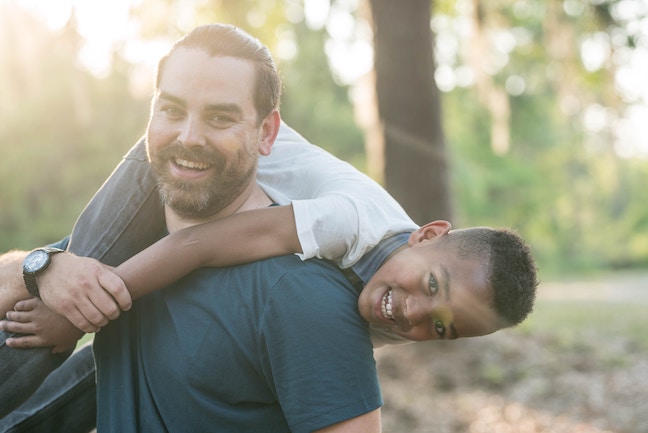It took me a long time to realize how cutting words can be to children. Convinced I needed to lay down the law in my home, I made it my mission to ensure justice. I was quick to point out every flaw and failing. I thought I was holding my children to a high standard of excellence, but what I was really doing was telling them in a thousand ways that failures are unacceptable.
The thing about any childhood, though, is that failures are baked into the cake. The chief way we learn is by failures. We stumble a thousand times as we learn to walk. We get food all over our faces as we learn how to eat. We misspell words and scrawl outside the lines as we learn to write.
And we make mistakes of judgment. We do dumb things, mean things, thoughtless things. I was that way as a child. You were that way. And yes, we needed correction at times. To be told No when we were selfish or lashed out in anger. To be made to clean up our messes.
The mistake I made for many years as a father was in thinking that enforcing the rules meant passing judgment. It wasn’t enough that my children suffered the consequences of their sin or stupidity, be they natural consequences like injuries from acting carelessly, or household consequences like being grounded or losing a privilege. No, I took it upon myself to make sure my children knew, deep down, that they had been wrong or foolish. As if the secret to their success lay in how stern I could be, and how biting my lectures were.
It’s how I was raised, after all. How many of us were raised. But maybe in your childhood you were fortunate enough to have an adult who held you to a high standard without ever saying an unkind word. Someone you knew loved you even when you screwed up. Someone you hated to disappoint because you could see in his eyes, when he looked at you, the person he believed you could be. His faith in you made you want to be better. Made you want to be better more than any lecture or shout from a less self-controlled adult.
Or maybe you didn’t have someone like that in your life, but needed him. Might you have had more self-confidence and less enduring shame, or perhaps just a commitment to excellence rooted not in fear of someone’s anger, but in a vision of your best possible self?

Suppose you die tomorrow. What kind of man do you want to step into the lives of your children? The angry father I was for too many years, or a man who is patient, merciful, and loving, yet unwilling to let your children adopt low standards for themselves?
Let’s hope you and I aren’t dying anytime soon. The question each of us has to ask himself as a father is: Which man am I when my children fail—angry, or kind? And which man do they need?
That’s the essence of this habit. We’re striving to restrain the anger that wants to rise up when our children misbehave or fail. We’re working instead to cultivate patience and kindness. Not to accept anything they do with a smile, but to continually direct them toward the right path with firmness rooted in love. In our belief in them, for what they can become.
And the way we get there isn’t through deep philosophical rumination, but by repeatedly asking ourselves two questions:
- How would I feel if I saw another man treating my children the way I’m treating them?
- How did I need to be treated when I was a boy?
Be that man for your children. The man you needed.

